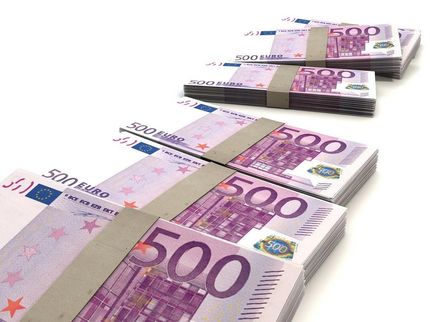Start-up aims to bring AI-powered protein engineering to every lab
Cradle raises $73M Series B: Speed up protein research and development by as much as ten times
Advertisement
Cradle, the leading platform for AI-powered protein engineering, has raised $73m in Series B funding to respond to rising demand for its technology in R&D intensive industries. The round was led by IVPwith participation from previous investors Index Ventures and Kindred Capital. With the current financing, Cradle has raised a total of more than $100 million to date.
Using Generative AI unlock the impact of engineered biology
Proteins are at the core of many products, from pharmaceuticals to food. Engineering these molecular machines has the power to reshape our world— enabling life-changing therapeutics, animal-free foods, eco-friendly pesticides, oil-free chemicals, and more. Developing new proteins is therefore key to unlocking smarter, more sustainable solutions to some of our toughest societal and planetary challenges, from fighting climate change to transforming healthcare and manufacturing.
However, traditional research methods for engineering better proteins have been slow, expensive, and unreliable. It can take years and many millions of dollars to run a successful R&D process and many projects are never completed successfully because they cannot achieve their targets.
Cradle's AI platform enables scientists to accelerate the discovery and development of improved proteins by making the process of engineering better proteins significantly easier, faster, and more cost-effective. The key to Cradle's success lies in its AI platform’s unique approach, which allows it to dramatically reduce the number of experimental rounds needed.
Cradle accelerates protein research & development as much as ten-fold
Cradle has experienced rapid growth, and is now in commercial deployment across a wide range of industries. In the last year, Cradle has significantly expanded its customer base and impact, signing new partnerships with Novo Nordisk and Ginkgo Bioworks and growing its customer base to include pharmaceuticals, chemicals, food, agriculture, and materials.
Cradle’s platform has been shown to accelerate research and development timelines considerably. For example, one biotechnology customer used Cradle to accelerate the activity of the P450enzymeby 4x in just three experimental rounds, compared to the previous 10 rounds. Cradle’s AI delivered significant value by helping to unlock a project that had previously stalled and was on a trajectory to termination. Cradle's platform discovered several impactful novel mutations paving the way for enhanced variants and future diversification strategies for this asset.
Cradle customers retain all intellectual property rights for proteins engineered on Cradle’s platform and have strict security controls over their data. Cradle’s platform architecture automatically generates models tailored to a customer's objectives and the customer’s data is used solely for training their specific models, ensuring data security. Cradle’s platform is also adaptable across multiple assets and use cases for both pharmaceutical and industrial applications including enzymes, antibodies, peptides, vaccines, and therapeutic proteins.
Stef van Grieken, Cradle’s CEO and co-founder, said: “Cradle was founded on the belief that we could solve global planetary and human health challenges by using generative AI to rapidly accelerate the development of bio-based products. Over the past two years, our own research and our collaborations with partners have proven that this technology can deliver remarkable results across a range of applications, from developing new vaccines and sustainable chemicals, to novel diagnostics and agricultural crop protection. Our goal is now to put Cradle’s software into the hands of a million scientists and empower them to build great products. Our Series B will make this next phase of growth possible and we’re delighted to have the backing of IVP to help us scale.”
Alex Lim, General Partner at IVP, commented: “Biology is one of the domains where generative AI can have the biggest positive impact and Cradle is leading the way with its pioneering approach to protein design as a digital service. Given the costs associated with drug discovery or similar fields of research, any efficiencies at the R&D stage will translate to both major financial returns for customers and significant real-world benefits for humanity. With impressive results delivered by Cradle’s platform just two years after launch, we see a bright future ahead for one of Europe’s - and the world’s - most consequential AI companies.”
The Series B funding will partly be used to expand Cradle’s own wet lab to generate additional datasets that will be used to train Cradle’s models to address a growing array of challenges and modalities. Cradle will also expand its engineering team to further improve Cradle's ML capabilities to better generalise across tasks and handle more complex proteins.
Cradle recently appointed life sciences industry veteran Sam Partovi as Chief Commercial Officer, the company’s 40th hire, to help expand Cradle’s impact in the biotech sector. Cradle will continue to expand its AI research, sales and operations teams to help onboard more new customers, scale the business and get its software into the hands of every scientist.
Other news from the department business & finance
Most read news
More news from our other portals
Something is happening in the life science industry ...
This is what true pioneering spirit looks like: Plenty of innovative start-ups are bringing fresh ideas, lifeblood and entrepreneurial spirit to change tomorrow's world for the better. Immerse yourself in the world of these young companies and take the opportunity to get in touch with the founders.
See the theme worlds for related content
Topic world Digitalization in the laboratory
The topic world Digitalization in the lab presents innovations and trends from digital data systems (ELN, LIMS) to laboratory robots and networked devices (IoT) to AI and machine learning.

Topic world Digitalization in the laboratory
The topic world Digitalization in the lab presents innovations and trends from digital data systems (ELN, LIMS) to laboratory robots and networked devices (IoT) to AI and machine learning.























































